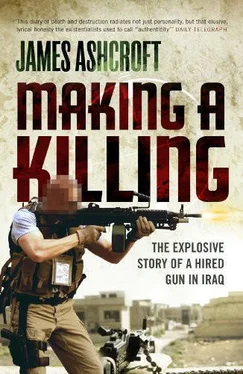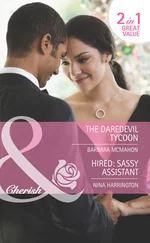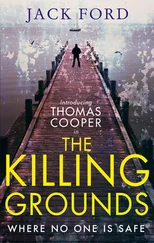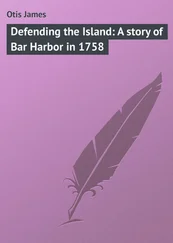We thought we could make up time on Route TAMPA, taking a chance that we would get turned back on the section of highway at a major military refuelling depot restricted to CF use only. At the checkpoint I showed a hassled sergeant our IDs.
‘The two vehicles behind are with us,’ I said.
‘Any Iraqi nationals in those vehicles?’ the sergeant asked.
I glanced at his name tag and then looked him straight in the eye.
‘It’s the Japanese press team, Sergeant Greves,’ I replied.
Half of them were Iraqis but the sergeant took a long look at the vehicle behind us where four Arab faces were pressed up to the window with their droopy Saddam moustaches and shemaghs around their heads. Sergeant Greves started another question and then decided he couldn’t be bothered to argue. He glanced again at my pass.
‘OK, sir, you have a nice day.’
Samawah was 300 kilometres south, a busy town with purposeful, friendly people in the streets and no beggars, a nice change from Baghdad.
There was no insurgent activity in Samawah, but when we arrived we still had our Baghdad heads on and de-bussed in full armour with weapons ready, scanning all the buildings and vehicles around us. The locals looked on bemusedly before going about their daily business.
We were staying in a four-storey house, surrounded by a walled garden. It was heavily ornate and gaudy in typical Arab style and I had no doubt that Tanaka-san’s company was being charged a king’s ransom in rent. I imagined the former occupants had been well-placed in the Ba’athist hierarchy to afford such a palatial residence and wondered what had happened to them. Our principal waited with the camera crew while we checked the location was secure.
‘Wait here for one minute,’ I said.
‘Thank you. Thank you,’ Tanaka-san replied with a little bow. He was a charming man in his thirties with swept back, jet-black hair and a natural smile.
Wayne checked the interior while Cobus and I scouted around the outside of the building. When we returned, Tanaka-san and the film crew had vanished. We assumed the Iraqis had parked the two cars and Tanaka-san was inside. We went in to look and found no one but a man sitting on a stool smoking with tears in his eyes as he chopped onions.
‘Hey, where is everyone? Hello, do you speak English?’ I asked the cook. Cobus ran up the stairs to check the first floor while I mimed the question again.
I was rewarded with a torrent of Arabic and waving. I caught one word that I recognised.
‘ Sayara? ’ I mimed driving to the cook. ‘Car?’
‘ Sayara, na’am , Mister,’ said the cook. He pointed down the road leading into town.
Wayne was looking out the window.
‘Fok.’
Tanaka-san had gone off into town with the Iraqis without his PSD team. I went to join Wayne. At least our car hadn’t been stolen or booby-trapped. Cobus was first out, fired the engine and we burned rubber into town. I wondered how we were going to explain to Adam that we had lost the principal and his camera crew on the first day.
‘ Bliksem! There he is,’ screamed Cobus triumphantly as we reached the main shopping street.
‘That’s not him,’ I said. The two South Africans assured me it was.
‘No, wait, there he is.’ Wayne pointed at another Japanese man rooting around at a roadside jewellery stall across the street.
I watched from the rear as both their heads swivelled left and right in furious disbelief. Then they saw a third Japanese man way up in front of us.
‘Faaaaark,’ roared Cobus, ‘there’s fokken hundreds of them.’
The arrival of Japanese soldiers in Iraq was such a big story, there were at least two dozen Japanese news teams in town covering the event and it fell to me to identify Tanaka-san. I remembered that he’d mentioned getting an aerial view of Samawah and after about ten minutes scanning the rooftops we saw Tanaka-san’s camera team on top of an abandoned tower block.
I left the Yaapies outside and ran up the dilapidated staircase. Tanaka-san bowed. I bowed. I asked him not to go off again without us. He bowed again. I bowed again. There was a lot more bowing during the next four days while we accompanied our principal to meetings between the Japanese advance party and local dignitaries. Tanaka-san persisted in dashing off with his crew and we usually found him in the scrum of Japanese paparazzi. The Yaapies were only able to identify Tanaka-san by his clothing, and removing his jacket while among the rest of the press caused Afrikaner hysterics.
The word must have gone out that Samawah was safe and we saw only one other Japanese TV crew with a security team. It was the first time we had observed foreigners mingling freely on the street, bartering for souvenirs and sitting in the carpet shops with little glasses of tea. As well as being the most peaceful town in Iraq, the locals, according to Tanaka-san, genuinely welcomed the arrival of the JMC. The Japanese had built the hospital ten years earlier, and in addition to the PR campaign directed at the local sheikhs and imams, the word on the street was that the Japanese were going to invest a lot more money in the town.
The effect on us was that rather than driving around looking at everyone over the front sight of a rifle, we drove around making a note of decent shops and nice-looking restaurants. We kept vests and longs locked in the car, stuffed pistols down the back of our belts and covered them with a shirt. As far as the locals could see we were armed with nothing more than walkie-talkies. I worried that we were losing our edge. If we relaxed any more we wouldn’t survive our first five minutes back in Baghdad.
The house was spacious but once behind the façade, everything was depressingly primitive. A tiny petrol generator provided only enough electricity for Tanaka-san’s laptop and lighting for two rooms. We showered in cold water in the dark, the ten of us used the one working toilet and we ate what the locals ate, i.e. the food was appalling. Breakfast was the only edible meal: flat bread, boiled eggs, cheese and yoghurt.
Most of our evenings were free and, after starving ourselves since the hard-boiled egg at breakfast, we would check out the good restaurants we’d noted while Tanaka-san was busy on his laptop editing the footage taken during the day. Then each night around midnight we would escort him to the pool satellite van for his ten-minute slot where he uploaded his story to his Japanese office for the morning news.
The JMC had flown into Kuwait, crossed the border and, when they finally set out for Samawah, we drove to the joint Dutch-Japanese base to film the historic footage of Japanese troops deploying for the first time in fifty years. Every Japanese TV crew, journalist and photographer with their horde of Iraqi fixers set up cameras around the entrance to the base, each team frantic to be the first to confirm the Japanese arrival. Tanaka-san told us that the first correspondent to report seeing the JMC would gain kudos for his channel. In the press world, breaking the news even thirty seconds earlier than a rival could make a career.
‘It is of the utmost importance to get the scoop,’ he informed me with his usual calm. Only the way his eyes flickered to the satellite van hinted at his inner turmoil.
As the hunger for a scoop grew, the camera teams began to edge further and further up the road away from the camp. This was Iraq, so the JMC was two hours late.
The cameramen grew bored by late afternoon and started filming each other. Eight TV cameras covered the scramble around the tea urn delivered by the Dutch media liaison officer. I was impressed at how some of the reporters had dressed for the occasion. Several stepped out of air-conditioned SUVs wearing Indiana Jones outfits with safari vests and water canteens on their belts.
Читать дальше












